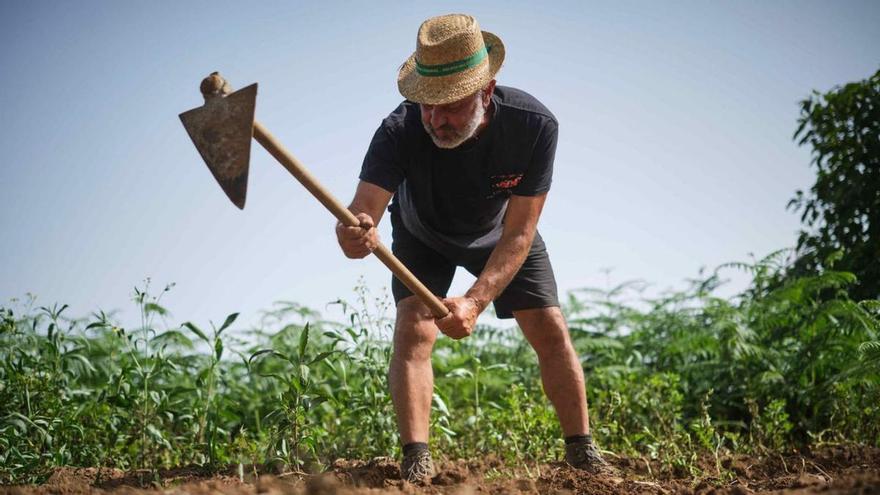
With a total investment of 700,000 Euros, the Primary Sector department of the Tenerife Island Council is promoting two protective measures to combat the Guatemalan Moth infestation. This comes as the harvest season for potatoes in the middle regions of the island is about to begin, which is expected to be one of the most challenging in recent years due to adverse weather conditions ranging from heatwaves to late spring cold and rain. The proposed measures include promoting crop rotation and providing a service for the correct removal of infested tubers.
The island’s councilor for the department, Valentín González, stated, “Our goal is to minimise the damage from the infestation and improve the quality of the island’s crop soils.” The total budget allocated for this purpose is precisely 699,445 Euros to combat the potato crisis on the island. González explained that in the latest Council meeting held this week, “We approved these two support lines to mitigate the damage and enhance soil quality.”
[–>
Agroecology
The first of the grants, amounting to 250,800 Euros, aims to implement agroecological practices that contribute to reducing the incidence of the infestation. As the councilor explains, “It is very difficult to eradicate this pest; we are promoting these grants to implement crop rotation, avoiding planting potatoes in the same field for two consecutive harvest seasons to break the infestation cycle.” The subsidies granted in the context of crop rotation over the past years have led to the implementation of this system on an average of 67 hectares per year.
[–>
Specialised Service
Valentín González highlighted that “with the aim of continuing the implementation of agroecological practices to minimize the damage from the infestation, the Primary Sector is promoting other initiatives.” These include, in addition to crop rotation, the acquisition of phytosanitary products, the specialised release of natural enemies of the pest, and the removal of affected potatoes. For this latter measure, the Council commissioned the public company Tragsatec with a budget of 448,645 Euros for the removal service of potatoes affected by the moth infestation.
[–>
Mandatory Harvest
The councilor emphasised that “this initiative is a response to the mandatory requirement for farmers to harvest all affected tubers in the field and take them to designated clean points.” The commissioning of Tragsatec aims to assist producers in carrying out this task. Through this, campaigns will be launched to raise awareness about moth control measures during harvest and post-harvest, including the installation of containers for collection in the production areas for subsequent transportation to the Tenerife Environmental Complex (Arico). This commission begins on the 15th of this month to coincide with the start of the harvest and has a 36-month implementation period.
The Guatemalan Moth (Tecia solanivora) is the most economically impactful pest for potato cultivation. Originating from Central America, it has spread to other parts of the world. In Tenerife, it affected 100,000 kilograms last year, with losses in previous years reaching up to 50% in the production of cooperatives in the north.
Subscribe to continue reading
















